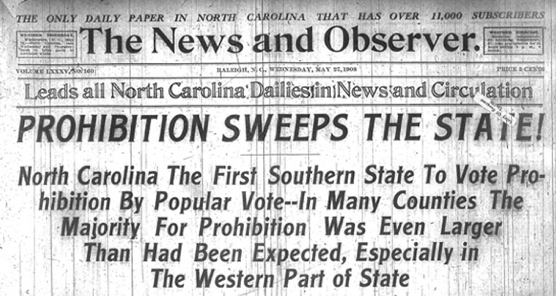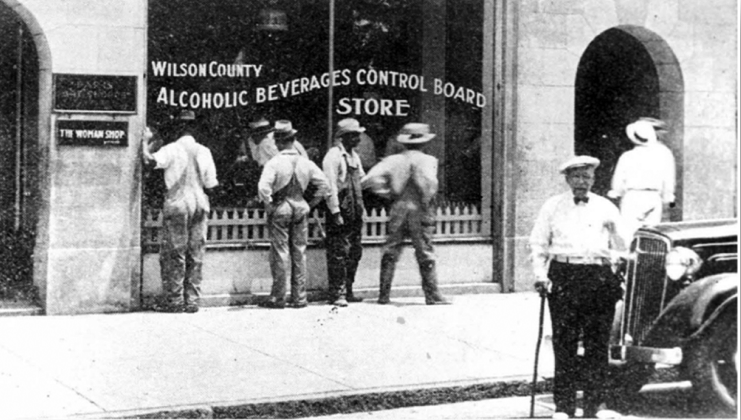A little background is necessary to understand the system and why North Carolina operates the way it does with regards to alcohol sales. In the early 20th Century, the temperance movement was gaining energy and many states began controlling where and when alcohol could be sold. On May 26, 1908, by a referendum vote of 62% to 38%, North Carolina became the first southern state to enact statewide prohibition of alcoholic beverages.
In 1933, prohibition was repealed and the constitutional amendment granted powers to the states to control their own alcohol beverage policy. In 1935, North Carolina created a study commission to study the control of alcoholic beverages and was to make recommendations to the next General Assembly. The commission looked to other states and found there were mainly two types of control states had decided upon, a state licensing system and a state monopoly system. In 1937, the study’s recommendations became law and The Control Act created a State Board of Control, which consisted of a Chairman, and two associate members who were appointed by the Governor. North Carolina created what is today called a “local option”, meaning voters in cities and counties were allowed to vote to determine if they wanted alcoholic beverages sold in their communities.
According to the ABC Commission, “On July 2, 1935, the first ABC store in North Carolina was opened at 311 Nash Street in Wilson. According to the Wilson Daily Times, dated June 22, 1935, the vote was 4,147 in favor of authorizing liquor sales and 428 against. ”




